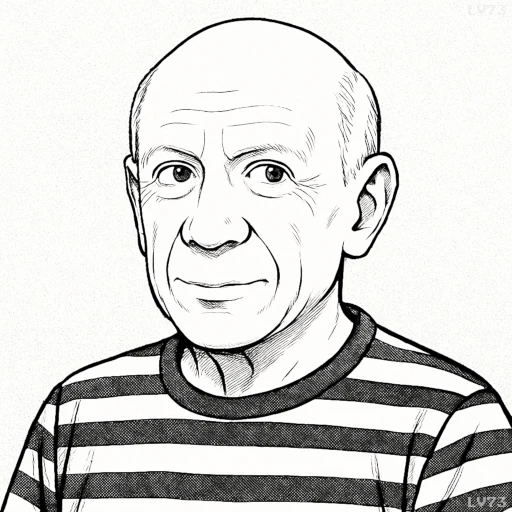“Who sees the human face correctly: the photographer, the mirror, or the painter?”

- October 25, 1881 – April 8, 1973
- Born in Spain
- Painter, sculptor, printmaker
table of contents
Quote
“Who sees the human face correctly: the photographer, the mirror, or the painter?”
Explanation
In this quote, Picasso explores the idea of perception and representation, specifically regarding how the human face is viewed and interpreted by different mediums. He poses a question about which perspective—the photographer, the mirror, or the painter—can truly capture the essence of a person. The photographer offers a literal, mechanical reproduction of the face, but the mirror provides an immediate, personal reflection that is shaped by our own perception. On the other hand, the painter distills the face through the artist’s imagination, skill, and subjective interpretation, offering a deeper, symbolic representation. Picasso’s own work often distorted the human face, especially during his Cubist period, where he broke down facial features into geometric shapes, reflecting his belief that no single viewpoint can fully capture the truth of human identity.
This quote resonates in modern times as we continue to grapple with how we present and perceive ourselves, especially in an age dominated by photography, selfies, and social media. In today’s world, the photograph is often seen as the most accurate representation of reality, but it is also heavily manipulated by filters and editing tools. The mirror, too, reflects not just our physical appearance but also the way we see ourselves and how we feel at a given moment. In contrast, the painter or artist still offers the freedom to explore identity in more abstract or symbolic ways, allowing us to question how others see us versus how we experience ourselves.
An example of this can be seen in the work of photographers like Cindy Sherman, who uses her own face to explore issues of identity and self-representation, or Frida Kahlo, whose self-portraits delved into the deeper emotional truths of her own experience. Similarly, in digital art and social media, people often manipulate their own images to present a curated version of themselves, raising questions about what is truly seen and understood in the images we create. Picasso’s quote reminds us that our identity is complex and cannot be captured by a single form of representation, whether it is through the lens of a camera, the reflection of a mirror, or the subjective view of an artist.
Would you like to share your impressions or related stories about this quote in the comments section?

